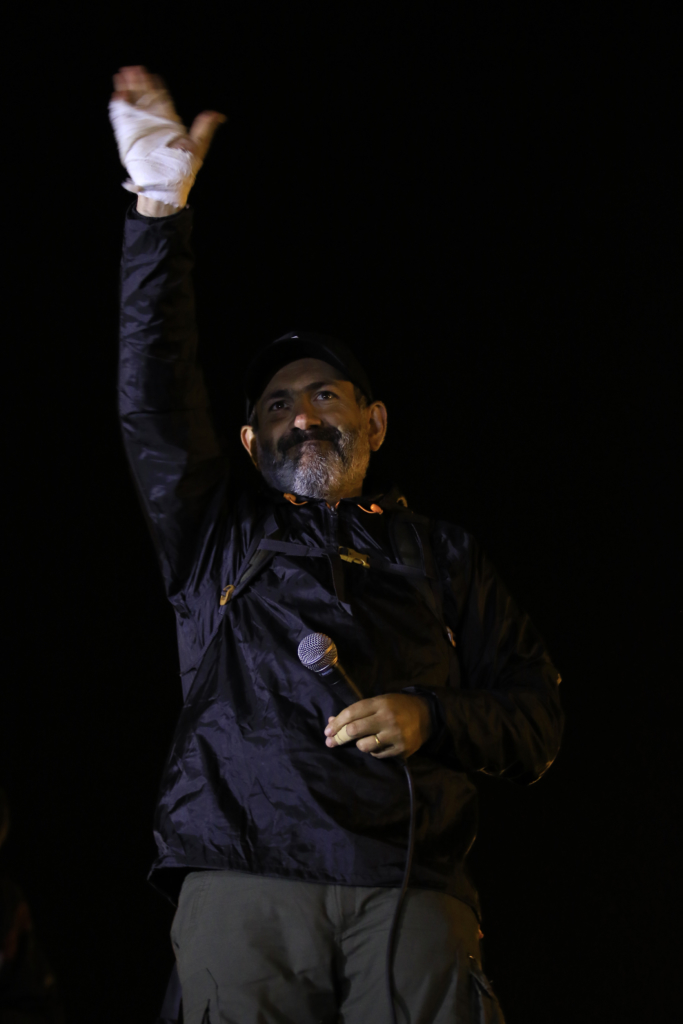Quality of life improvements, fighting corruption and oligarchs: how Armenia has changed 2 years since the revolution
Amid the spread of coronavirus, an important date in the history of independent Armenia, the second anniversary of the Armenian velvet revolution, went rather unnoticed.
On May 8, 2018, MPs, under pressure from tens of thousands of protesters, elected a new prime minister.
People took to the streets against the current government. And the MPs, most of whom represented the ruling party, elected the leader of the revolution the head of government.
Nikol Pashinyan headed up the state and promised citizens a whole new life.
- Is public confidence in gov’t of revolutionary PM Pashinyan on the wane in Armenia?
- Leaving the US for Armenia – four different but similar stories
Promises and reality
Pashinyan and his team promised street protesters to defeat corruption, expel people from power structures who had “robbed and made money for many years,” separate the government from business, oblige all businessmen to pay taxes, ensure the independence of the courts and fair elections.
Political scientist Tevan Poghosyan notes, as usual in such cases, initially high expectations were formed in society – according to promises. However, it is difficult to boost the economy over such a period, as well as completely eradicate corruption.
“There is great energy in the words. If you say ‘revolution’, then the tasks must be revolutionary. ”
According to Poghosyan, these tasks were set, “revolutionary expectations” ripened on them, and now in Armenia they may play a cruel joke on the authorities.
A significant part of society expects an economic breakthrough and an improvement in life.
One of the main reasons for people participating in street rallies in 2018 was the social and economic hardship, the unfair distribution of resources.
Economic growth two years after the revolution was palpable – above 5%, but ordinary people could not fully feel it on themselves. Experts believe that this is largely logical.
“In order for citizens to really feel the difference, in our conditions it is necessary for incomes to grow by a very large percentage, significantly. But there are still improvements, and this is indicated by data on migration – people have begun to leave less often from Armenia,” says economist Hrant Mikaelyan.

Shadow economy
After the revolution, the Pashinyan government announced that everyone should pay taxes – and this process began. As a result, tax collections for 2018 and 2019 increased by 44% compared to 2017.
The government did not interfere with the work of oligarchs who accepted the new conditions of the game. Armenia avoided the redistribution of property.
Economist Hrant Mikayelyan says the government has managed to reduce the shadow share from 26 percent to 23 percent. However, further it will be difficult to do, the expert is convinced:
“All the big business that was associated with the government has already been brought in from the shadows. Now a segment remains in the shadow, which is very difficult to tax. These are small shops and private traders in the field of services. ”
For the further development of the economy, investments are needed, which are not yet available, Hrant Mikaelyan believes, and a struggle against the shadow economy cannot ensure development. And investors, in his opinion, are not in a hurry to Armenia because of the unstable situation.
А new political elite
When Pashinyan came to power, he insisted on holding new parliamentary elections.
According to their results, the composition of the parliament was almost completely updated.
The Republican Party of Armenia that had ruled the country for many years has not been able to overcome the threshold.

As for the Pashinyan team, it is made up of young, knowledgeable people, many of whom were educated abroad, but who had nothing to do with politics before that.
Many oligarchs left the government power along with the previous authorities, but at the qualitative level, no significant changes have occurred, political analyst Tevan Poghosyan says:
“Can and does the parliament respond to problems, to letters from citizens? Literally today, the implementation of the 2019 budget was discussed. One of the main issues is capital expenditures, which were partially implemented. For the economy, their implementation was important. Did we see a solution to the problem? Did those responsible feel any pressure? As soon as the ruling party realizes that it has received a mandate to solve problems, everything will change. There is no such understanding, but, apparently, this also takes time.”
Experts say that in the conditions of a parliamentary republic, too much power was concentrated in the hands of the prime minister. Under these conditions, the National Assembly cannot, and in its current composition, does not want to play a controlling role.
Will of one person or a new culture?
One of the main criticisms of Pashinyan is that he has a weak team. Some are inclined to believe that this is the strategy of the leader of the Armenian revolution – not to keep charismatic and bright figures close by.
In the current conditions, all key decisions rest on the will of one person, and the question arises of how long-term these changes are.

Political scientist Tevan Poghosyan believes that it is too early to talk about institutional transformations. There is no systematic fight against corruption in the country, there has been one cycle of honest and fair elections, but there is no certainty that in the future everything will be the same:
“There is a famous formula. If a country wants to consider itself democratic, it is necessary to conduct three cycles of fair elections. We have had only one so far. As soon as there are three, we can assume that we are moving in the right direction.”
Economist Hrant Mikaelyan says there are fundamental transformations with an eye to the future. He calls the current indicators inertial.
In order for society does not become disillusioned with revolutionary transformations, a development strategy is needed in all areas, Tevan Poghosyan says.



















